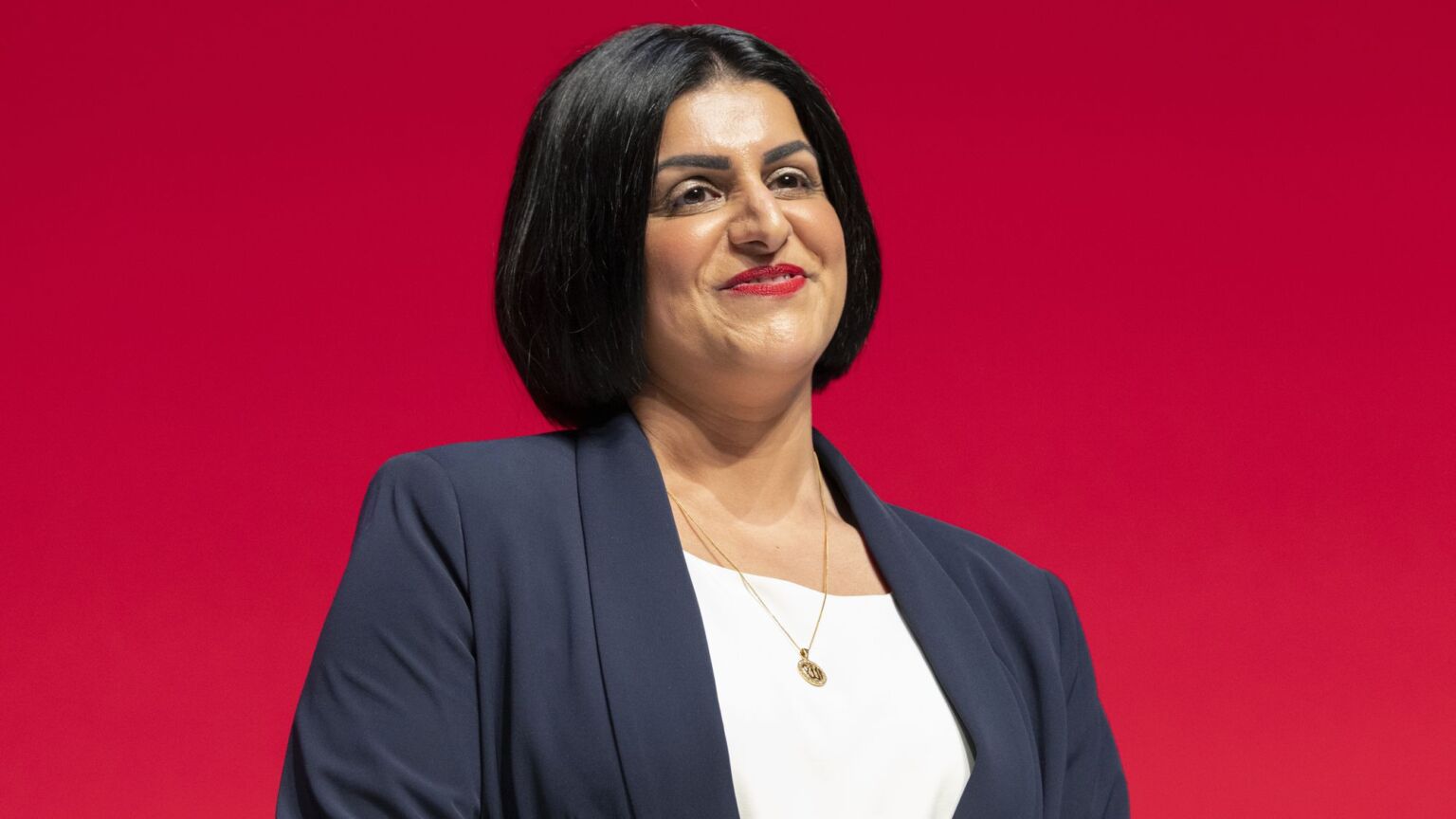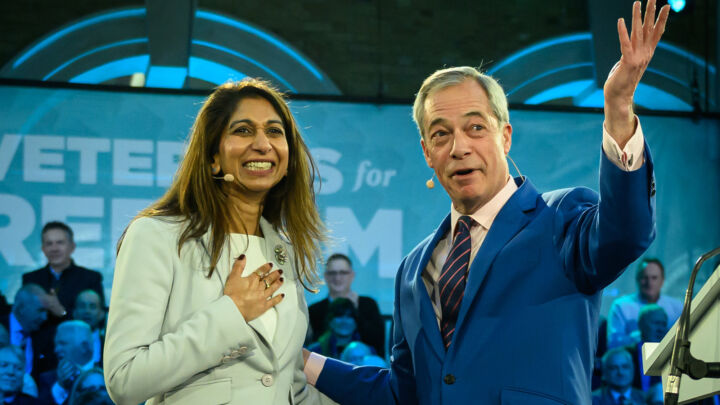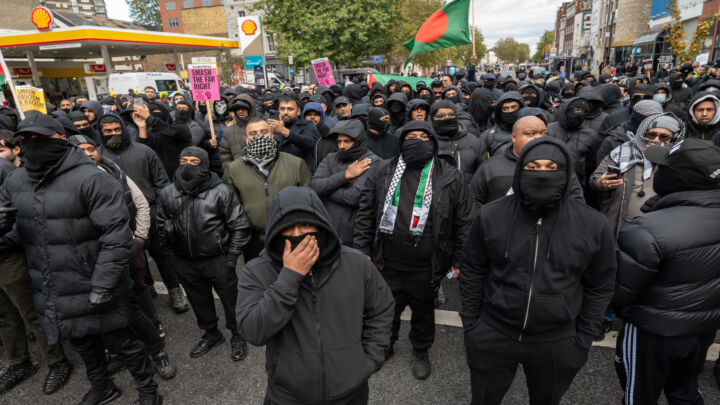The muddle over Englishness
When we conflate ancestry, ethnicity and culture we create nothing but resentment.

Want unlimited, ad-free access? Become a spiked supporter.
Every time the question of Englishness surfaces, corners of social media erupt. The latest row was triggered by Shabana Mahmood at the Labour Party conference earlier this month. The UK home secretary warned that parts of British politics are veering into ‘ethno-nationalism’, which ‘struggles to accept that someone like me, who has a face like mine, can truly be English or British’.
Her statement divided opinion, to put it mildly. The online right slammed her for claiming to be English while having no English ancestors. Former home secretary Suella Braverman also questioned Mahmood’s claim to Englishness, saying of her own identity:
‘I am not English. I am a proud British Asian… I love England and the British people.’
Others backed Mahmood’s stance, arguing that black public figures like Ian Wright and Paul Ince could not be considered anything other than English.
The row reveals how muddled our understanding of Englishness has become. Much of the confusion stems from conflating three distinct but overlapping categories: ancestry, culture and social identity.
In common parlance, Englishness has a dual meaning. It can refer to ancestry (the descendants of Anglo-Saxons) or to culture (those who share the sensibilities shaped by life in England). When Ian Wright is called English, it’s meant in the cultural sense, based on his accent, mannerisms and genuine love for his country. The same sentiment applies to Frank Bruno. There is a sense that he is ‘one of us’. Englishness, in this sense, is about cultural familiarity, and the way someone carries themselves, rather than ethnicity or ancestry.
By contrast, there are people like Elon Musk, who have an ancestral link to the English people (which he often brings up), but no cultural claim to be English. The X owner was neither born nor raised in England. In his case, Englishness refers to his lineage, not his cultural identity (he was raised in South Africa and now identifies as American).
Both the cultural and ethnic definitions of Englishness are valid, but context matters. Ian Wright cheering ‘we’ when England play does not mean he claims to be ancestrally English, any more than Musk’s genealogy would make him culturally English. On social media, this nuance is flattened. The result is that Englishness becomes a single, contested label.
It would be easy to dismiss this as a discussion that only the chronically online take an interest in. But that no longer holds. Platforms like X now shape political discourse. This is why maintaining clarity is so crucial.
In a globalised world, ancestry, culture and social identity often meet at the edges. Yet they do not map neatly on to one another. Take someone of English and Caribbean parentage. Raised in Britain, they could be culturally English and identify as mixed-race. Raised in Jamaica, they could be culturally Jamaican and identify as black. Two individuals with near-identical ancestry would hold different identities according to the cultural context. Indeed, no one would describe Bob Marley as English, despite him having a white English father.
If we accept that Englishness is an ethnicity, that also doesn’t reduce it purely to a question of ancestry. Ethnic groups may have a broad spectrum of genetic ancestry while sharing other factors that carry a metaphysical dimension, such as shared myths, virtues, sensibilities and ways of belonging that transcend descent. Being English is not simply about proving descent from the Angles, Jutes and Saxons, but also about participating in the cultural soul of the nation. The question remains, then: when does participation in that story amount to being English? And is that door open to all foreigners, or just some?
Historically, of course, those absorbed into the English were neighbouring peoples. Today, mass migration undoubtedly presents a different challenge: its scale, nature and purpose inevitably shape the prospects for assimilation. Dodging that question only deepens the cultural anxiety driving our identity wars.
We must not abandon layered thinking (ironically, a distinctly English trait) when discussing these matters. In each context, we should be clear about whether we are speaking of ancestry, ethnicity or culture, and be robust against bad-faith arguments. Collapsing all of these categories into one does little except paralyse debates about immigration, multiculturalism and belonging.
Until we recover some nuance, debates about who is English – and who is not – are unlikely to produce anything but resentment.
Jide Ehizele is a cultural critic and writer on identity, faith and belonging.
£1 a month for 3 months
You’ve hit your monthly free article limit.
Support spiked and get unlimited access.
Support spiked – £1 a month for 3 months
spiked is funded by readers like you. Only 0.1% of regular readers currently support us. If just 1% did, we could grow our team and step up the fight for free speech and democracy.
Become a spiked supporter and enjoy unlimited, ad-free access, bonus content and exclusive events – while helping to keep independent journalism alive.
———————————————————————————————————————————–
Exclusive January offer: join today for £1 a month for 3 months. Then £5 a month, cancel anytime.
———————————————————————————————————————————–
Monthly support makes the biggest difference. Thank you.










Comments
Want to join the conversation?
Only spiked supporters and patrons, who donate regularly to us, can comment on our articles.